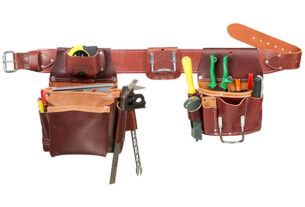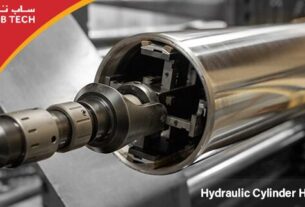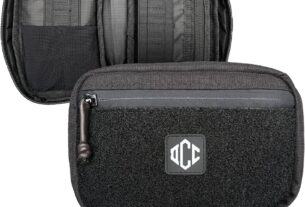Iron worker tools are essential for any construction project. From cutting and bending steel to installing beams, these tools help iron workers get the job done efficiently and accurately.
As an iron worker, having the right tools is crucial for your safety and success on the job site. In this guide, we’ll take a closer look at the different types of iron worker tools available and offer tips for choosing the best equipment.
Types of Iron Worker Tools
1. Ironworker Pliers
Ironworker pliers are a versatile tool that can be used for a variety of tasks, such as cutting wire, gripping bolts, and twisting rebar. These pliers typically have serrated jaws that provide a strong grip on materials.
When choosing ironworker pliers, look for ones with comfortable handles that won’t slip out of your hands while you’re working. You’ll also want to consider the size of the pliers – larger pliers may offer more leverage, but smaller ones may be easier to maneuver in tight spaces.
2. Bolt Cutters
Bolt cutters are an essential tool for any iron worker. They’re used to cut through bolts, chains, and other tough materials quickly and easily. When choosing bolt cutters, consider the size of the blades – larger blades may make it easier to cut through thicker materials, but smaller blades may be more maneuverable.
You’ll also want to consider the length of the handles – longer handles may offer more leverage but can be harder to control if you’re not used to using them.
3. Rebar Cutters
Rebar cutters are designed specifically for cutting through rebar quickly and easily. These tools typically feature sharp blades that can slice through even thick rebar with ease.
When choosing a rebar cutter, look for one with a powerful motor that can handle even heavy-duty jobs. You’ll also want to consider the size and weight of the tool – larger cutters may be more powerful, but can be harder to maneuver.
4. Ironworker Hammers
Ironworker hammers are specially designed for use in construction projects. They’re typically heavier than regular hammers and feature a longer handle for added leverage. These hammers are ideal for driving nails and other fasteners into tough materials like steel.
When choosing an ironworker hammer, look for one with a comfortable grip that won’t slip out of your hands while you’re working. You’ll also want to consider the weight of the tool – heavier hammers may offer more power, but can be harder to control.
5. Chisels
Chisels are used for cutting through metal, concrete, and other tough materials. They come in a variety of shapes and sizes, each designed for different types of cuts.
When choosing chisels, consider the material you’ll be working with most often – some chisels are better suited for cutting through metal, while others are designed for use with concrete. You’ll also want to consider the angle of the blade – straight blades may be easier to control, while angled blades may offer more power.
Choosing the Best Iron Worker Tools
When choosing iron worker tools, there are several factors to consider:
1. Quality
Investing in high-quality tools is essential for getting the job done right. Cheap tools may save you money upfront, but they’re likely to wear out quickly or break under heavy use.
Look for brands that have a reputation for producing durable, reliable tools that can withstand heavy use over time.
2. Functionality
Consider the tasks you’ll be performing most often on the job site and choose tools that are specifically designed for those tasks. For example, if you’ll be cutting through thick rebar frequently, invest in a high-quality rebar cutter.
3. Comfort
Working with heavy tools all day can be tiring, so choose tools with comfortable handles that won’t cause hand fatigue or blisters. Ergonomic handles are a great option for reducing hand strain.
4. Safety
Iron worker tools can be dangerous if not used properly. Look for tools with safety features like blade guards and non-slip grips to reduce the risk of accidents on the job site.
Conclusion
Choosing the right iron worker tools is essential for any construction project. By investing in high-quality, reliable equipment that’s specifically designed for the tasks you’ll be performing most often, you can ensure your safety and success on the job site.
Remember to consider factors like functionality, comfort, and safety when choosing tools, and always prioritize quality over price.
References:
https://www.wikihow.com/Choose-Ironworker-Tools
https://www.constructionprotips.com/tools-materials/top-10-tools-for-ironworkers/




